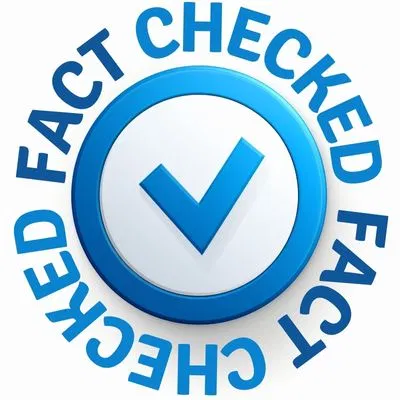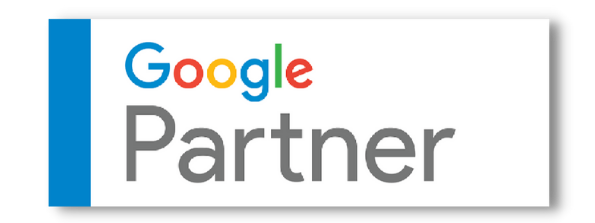100+ Basic SEO Terms You Should Know About

Published July 5, 2023
Whether you are a business owner, a marketer, or simply interested in digital marketing, understanding SEO terms is essential. SEO constantly evolves, and staying on top of the basics is important. Getting started with this SEO vocabulary is easier than you might think.
100+ Basic SEO Terms
The first step to mastering SEO is familiarizing yourself with the basic SEO terminology. From “backlinks” to “meta descriptions,” knowing these terms will allow you to better communicate with your team and implement effective SEO strategies. So, whether you’re looking to optimize your website or expand your knowledge, these 100+ basic SEO terms are a great place to start.
#
2xx status codes – Server confirms successful request.
301 Redirect – Permanent webpage redirection from one URL to another.
302 Redirect – Temporary webpage redirection from one URL to another.
4xx status codes – Server indicates request failure and missing information.
5xx status codes – Server indicates a server-related problem.
A
Accelerated Mobile Pages (AMP) – Google’s open-source project for creating optimized webpages and content across devices.
ALT Text/Alt Attribute – Description of an image in HTML. Search engines rely on ALT text, not the image itself. Add ALT text to images.
Anchor Text – Text of a hyperlink. It helps search engines understand the destination page and its content.
Authority – A measure of a website’s reliability based on search engine algorithms.
B
Backlink – A hyperlink directing to a webpage on another domain.
Black Hat – Unethical practices that violate Google’s webmaster guidelines.
Blog – A web page containing posts related to specific topics or industries.
Bookmark – A saved link for future reference in a web browser or computer.
Bot – A programmed software application designed for specific tasks.
Bounce Rate – The percentage of users who exit a webpage after viewing only one page.
Branded Keyword – A search term associated with a particular brand.
Breadcrumb – A navigational link indicating the current location on a website relative to the homepage.
Broken Link – A hyperlink that leads to a 404 error page due to a missing or unreferenced webpage.
Browser – Software enabling access to internet information and data. Common examples include Google Chrome and Safari.
C
Cache – Storage for temporary data, enhancing website, app, and browser loading speed.
Canonical URL – The preferred address for information, clarifying content location to search engines.
ccTLD – Country-code top-level domain designating a specific country or region.
Cloaking – Black hat practice that displays different content than expected on a webpage.
Conversion Form – Collects visitor information, converting traffic into leads for follow-up.
Crawler – Search engine program gathering and indexing website information.
CSS (Cascading Style Sheets) – Code defining visual aspects of a site’s elements.
D
Deep Link – Link to mobile app content or non-homepage webpage.
De-Index – Removal of a website or webpage from search results.
Disavow – Instructing Google to ignore low-quality, spam, or artificial links.
Do-follow – Hyperlink instructing search engines to follow the link (opposite of “nofollow”).
Domain – A site’s main web address.
E
External link – Hyperlink to a webpage on a different domain, also called a backlink.
F
Featured Snippet – Highlighted excerpts at the top of Google search results (position 0).
The Fold – Point on a webpage where content is cut off at the bottom of the user’s screen.
G
Google My Business – Google’s local business directory.
Google Search Console – Free Google tool to monitor website performance.
Guest Blogging – Publishing blog posts on external websites.
H
Header tag – Code defining headings and subheadings.
Headings – Section headers on a website placed within header tags (e.g., H1 or H2).
HTML – Code read by search engines. Maintain clean HTML for better indexing. Place layout-related code in CSS.
I
Image Compression – Reducing image file size to speed up web pages.
Indexing – Search engine process analyzing website content and creating a catalog.
Inbound Link – Link from another website to yours.
Internal Link – Link within the same website, connecting pages (e.g., homepage to products page).
Indexed Pages – Website pages stored by search engines.
J

Javascript – Scripting language for website effects and changes as users browse.
K
Keyword – Word entered by a user in a search, optimizing web pages to attract relevant visitors.
Keyword Difficulty – Measure of competitiveness and ranking challenge for a keyword.
Keyword Research – Process of identifying target keywords based on factors like volume and difficulty.
Keyword Stuffing – Excessive use of keywords in the content to artificially boost rankings.
L
Lazy Loading – Technique deferring object loading to enhance page speed, e.g., infinite scroll.
Link Building – Activity of acquiring inbound links to improve search engine rankings.
Link Juice – Value or authority gained from a high-authority website backlink.
Link Schemes – Google-defined manipulative tactics to manipulate search rankings through spammy practices like buying/selling links or excessive cross-linking.
Long Tail Keyword – Longer, more specific queries consisting of more than three words.
M
Metadata – Information that informs search engines about the content of your website.
Meta Description – A concise summary of a page’s content, displayed below the page title on search engine results pages.
Meta Keywords – Previously used by search engines but no longer significant, meta keywords tag conveyed page relevance.
Minification – Removing unnecessary characters in source code to enhance page loading speed without affecting functionality.
Mobile-first Indexing – Google prioritizing the mobile version of a webpage for indexing and ranking.
N
Nofollow – When a link does not pass SEO credit from one site to another.
O
Organic Traffic – Visitors who discover your website through search engine results rather than paid ads.
P
Page Speed – The speed at which a webpage loads, influenced by factors such as file sizes and source code.
Page Title – The name of a web page displayed at the top of the browser window, ideally containing relevant keywords.
PageRank – A score assigned by Google indicating the overall quality of your SEO efforts.
Pagination – Breaking up content into multiple pages, commonly seen on e-commerce category pages.
Panda – Formerly a separate algorithm, now integrated into Google’s core algorithm to combat black hat tactics.
People Also Ask – A feature on search engine results pages displaying related questions and answers.
PPC (Pay-Per-Click) – An advertising model where advertisers pay for each click on their online ads.
Q
Query – The words or phrases entered by a user in a search engine.
R
Rank Brain – Google’s algorithm component that utilizes machine learning to comprehend queries and deliver optimal results.
Ranking Factor – The elements that influence a website’s position in search engine rankings.
Redirection – Moving a URL from one location to another.
Referrer String – Information transmitted by a user’s browser when navigating from page to page, aiding webmasters in understanding how visitors find their website.
Rel=canonical – An HTML tag indicating the original version of a webpage and distinguishing it from duplicate content.
Responsive design – A design approach that enables a website to adapt to any device, enhancing the user experience.
Robots.txt – A text file informing search engine crawlers which parts of a website are accessible and which ones to ignore.
RSS Feed – A subscription-based method to receive updates on new content from a web source.
S
Search Intent – The purpose behind a user’s search query.
Search Volume – The frequency of keyword searches within a specific timeframe, often a month.
Seasonal Trends – Natural fluctuations in keyword popularity during specific times of the year.
Seed Keyword – A primary, short-tail keyword targeted for ranking purposes.
SEO – Search engine optimization, tactics employed to improve a website’s ranking for specific keywords.
SERP (Search Engine Ranking Page) – The page displayed after a search query.
Sitemap – A document or software-generated map of a website’s pages, aiding search engine indexing.
Social Media – Online platforms facilitating the creation of virtual communities.
Spider – A program that browses the internet and collects website information.
SSL Certificate – “Secure Sockets Layer” certificate encrypting data exchanged between a web server and browser.
Status Code – The server’s response code following a request.
Structured Data – Well-organized and tagged data to assist search engines in comprehending information.
Subdomain – A subsection of a primary domain used for better website organization and navigation.
T
Traffic – The number of website visits received.
Title Tag – The page title enclosed in a <title> HTML tag within the head section of a webpage. It appears in search engine results and at the top of a user’s web browser while on that page.
Traffic Rank – The ranking of a website’s traffic volume compared to other sites on the internet.
U
Unnatural Links – Links that are created without the endorsement or editorial intent of a site owner.
URL – The website address or web page location.
User Experience (UX) – The overall satisfaction and impression users have while interacting with a product, service, website, or mobile application, especially in the context of SEO.
W
White Hat – SEO strategies and techniques that adhere to ethical guidelines and best practices without attempting to manipulate search engines.
Website Navigation – The elements and features on a webpage that facilitate easy access to different pages within a website.
X
XML – Abbreviation for extensible markup language, which is used by search engines to interpret website data.
XML Sitemap – A file that provides a list of important pages on a website, aiding search engines in discovering and crawling them.
Conclusion
Use this glossary if you need help communicating with those using these SEO terms. Overcoming the barrier of technical jargon will empower you to harness the full potential of your site as a formidable marketing tool.
Hire The Digital Marketing Experts
We take online businesses and turn them into online empires by employing smart digital marketing strategies. Our team of experts are trained in a myriad of marketing skill including SEO to help you rank higher in search results, and ad management to ensure your message gets seen by the people you want. Need a business website that attracts business? We also specialize in website design and online sales optimization to help your business grow like never before.

This Content Has Been Reviewed For Accuracy By Experts
Our internal team of experts has fact-checked this content. Learn more about the editorial standard for our website here.

About The Author
Krizzia Paolyn, is an SEO Specialist and author based in the Philippines. She holds a bachelor’s degree in Psychology. It has always been her passion to share her voice, and at the same time, to encourage others to share their voices as well. You can connect with her on LinkedIn.



